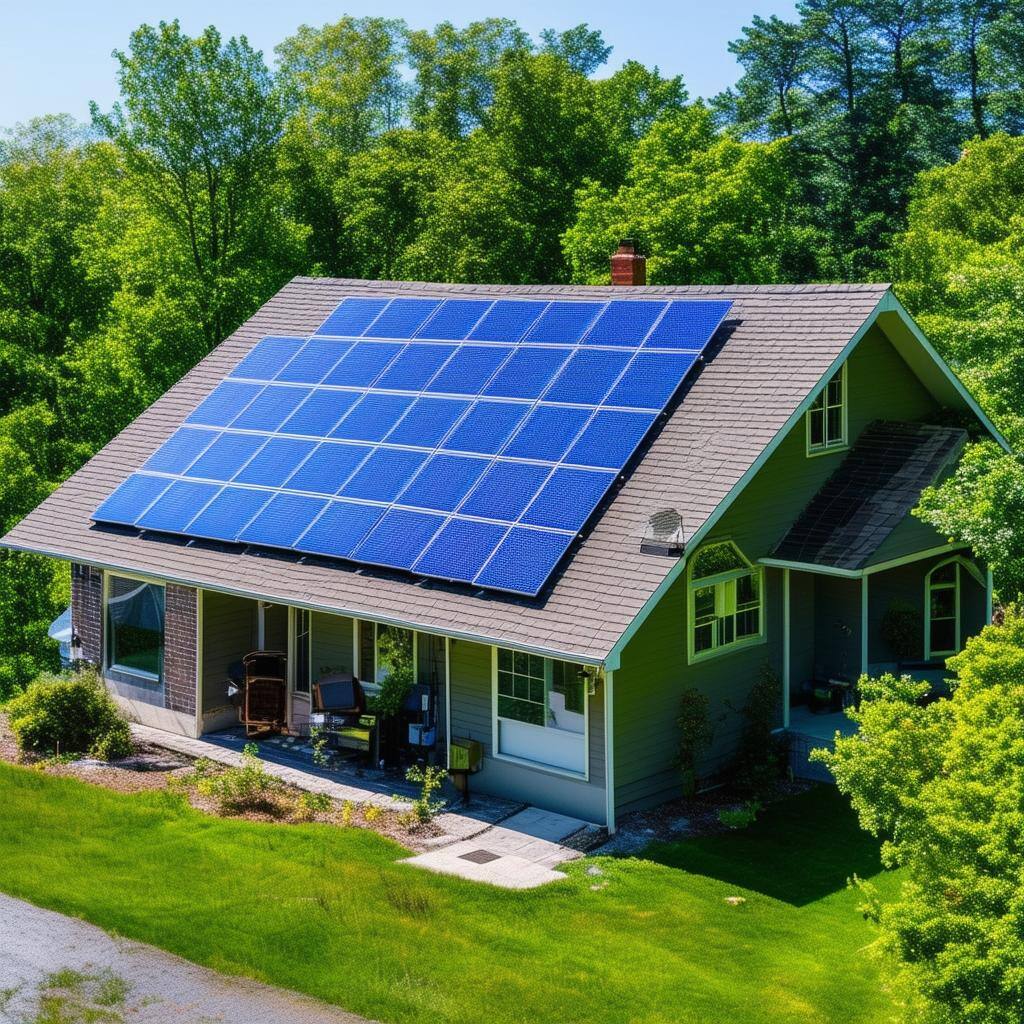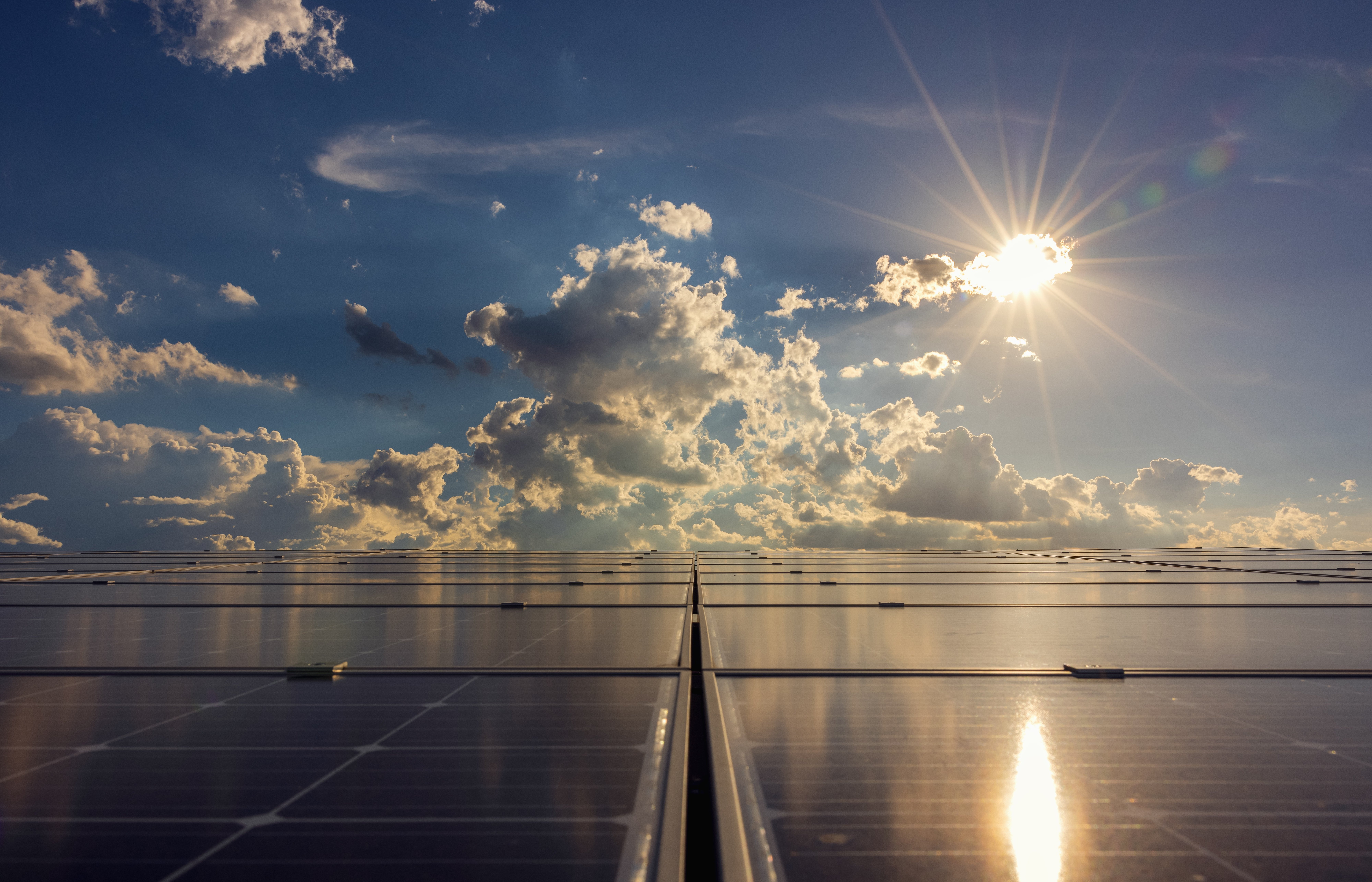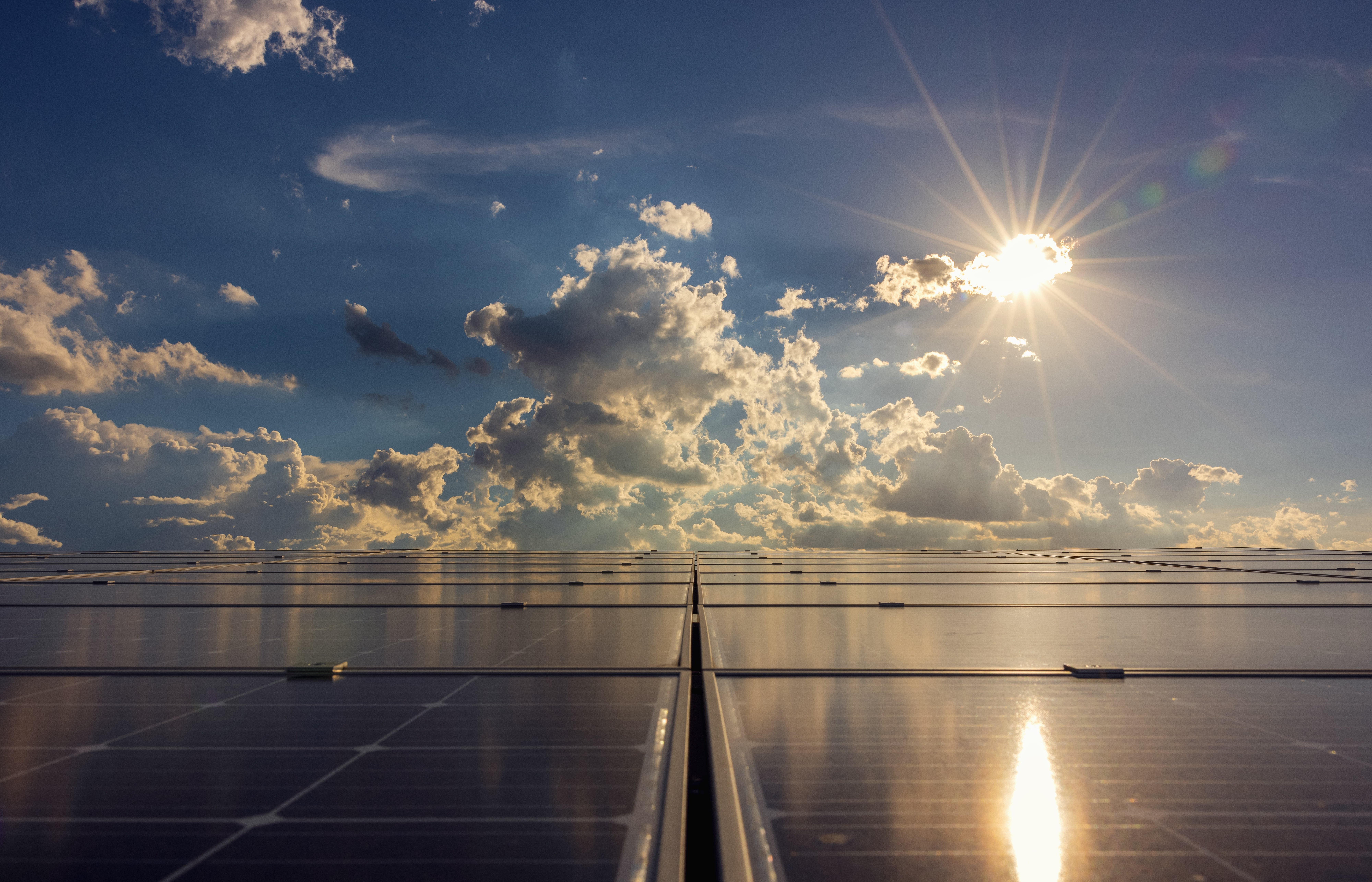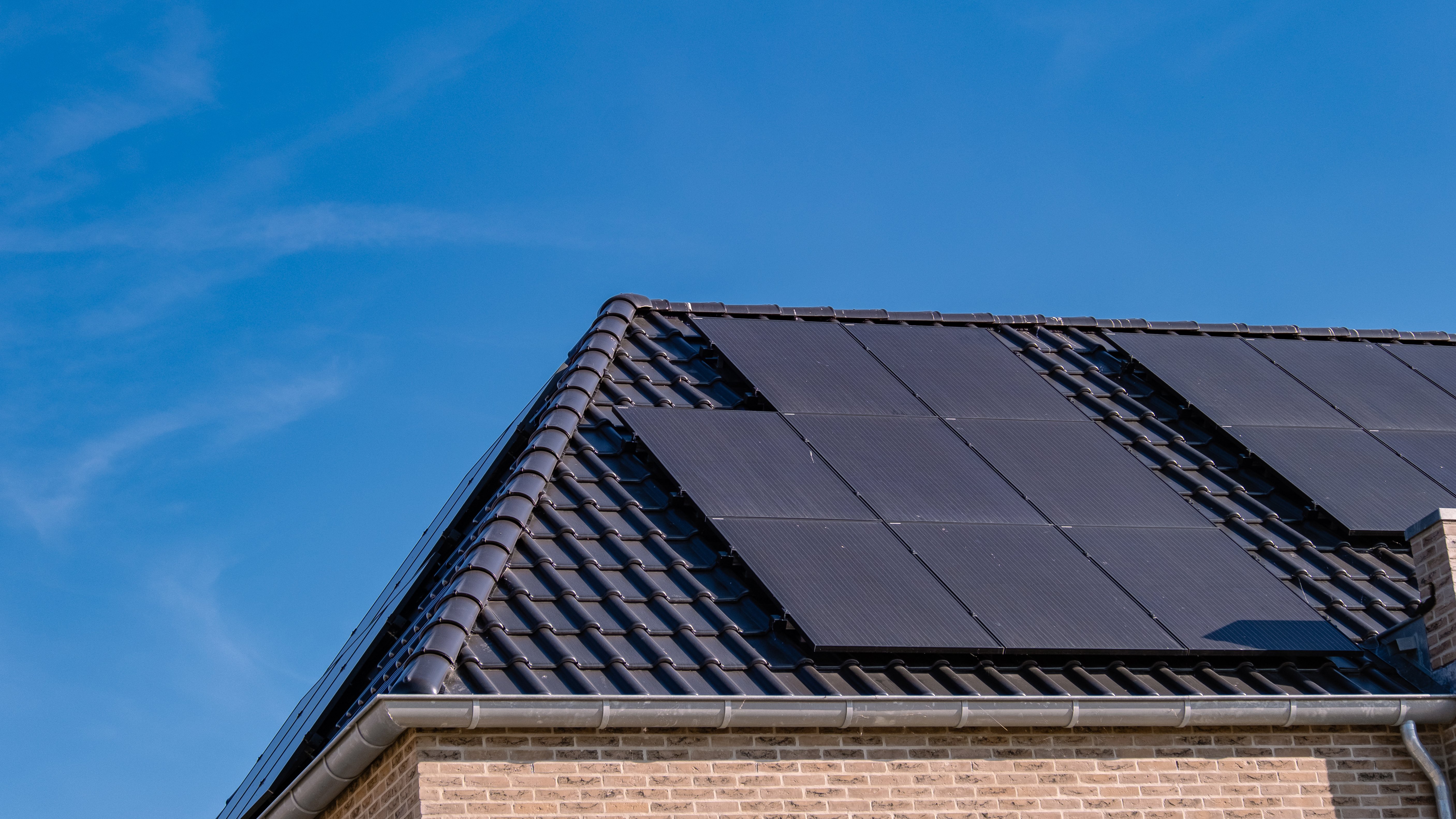From Installation to Savings: Your First Year of Solar Energy, Explained
So, you’ve decided to take the leap into solar energy. Congratulations! Solar power is not only an environmentally friendly choice but also a smart...
5 min read
Peter Swenson : Oct 14, 2024 5:31:17 PM

As more homeowners seek sustainable and cost-effective energy solutions, solar energy has emerged as a leading choice. Solar power not only offers environmental benefits but also presents significant financial advantages for those looking to reduce their reliance on traditional electricity grids. However, for beginners, navigating the world of solar energy can be daunting. Where should you start? How do solar panels actually work? What are the financial implications, and is solar the right choice for every home?
In this guide, we’ll introduce you to the key concepts of solar energy, summarize the benefits, and help you explore whether solar is a good fit for your home. By the end, you’ll have a solid understanding of solar power’s basics and know where to find more specific insights that suit your needs.
At its core, solar energy harnesses the sun’s power and converts it into usable electricity. This process is achieved through photovoltaic (PV) cells, which are found in solar panels. When sunlight hits these PV cells, it triggers a reaction that generates direct current (DC) electricity. Since most homes run on alternating current (AC), an inverter is needed to convert the DC into AC, allowing the electricity generated by the solar panels to power household appliances and systems.
Solar energy systems can be grid-tied, where excess electricity is sent back to the utility grid, or off-grid, where energy is stored in batteries for use when sunlight isn't available. The ability to sell excess energy back to the grid through net metering makes solar energy even more appealing to homeowners by reducing overall electricity costs.
To delve deeper into how this process works and learn about the role of inverters and net metering, check out the post How Does Solar Energy Work? A Simple Explanation.
If you’re wondering why so many homeowners are making the switch to solar energy, the reasons are numerous and compelling. Let’s break down the top five benefits that make solar power an attractive option for households:
Solar panels allow homeowners to generate their own electricity, often significantly lowering monthly utility bills. Depending on the size of the system and local conditions, some homeowners can see a reduction in their energy costs by as much as 70%. The introduction of net metering allows homeowners to sell unused electricity back to the grid, further enhancing savings.
Homes with solar panel installations often fetch higher resale values. Solar energy systems are seen as a long-term investment, appealing to buyers who want to lower their future utility costs. Studies have shown that solar-equipped homes sell more quickly than those without solar, making it a wise addition for homeowners looking to increase their property’s marketability.
Governments offer various financial incentives to encourage homeowners to adopt solar power. The Investment Tax Credit (ITC), for example, allows homeowners to deduct a portion of the cost of their solar installation from their federal taxes. State and local programs may also offer rebates or tax credits that further reduce the financial burden of going solar.
For environmentally-conscious homeowners, solar energy offers a significant reduction in carbon emissions. Solar panels generate clean, renewable energy without the harmful pollutants associated with fossil fuel-based electricity. Switching to solar is one of the most effective ways to lower your household’s carbon footprint.
With rising electricity prices and an aging power grid, more homeowners are looking for ways to achieve energy independence. Solar energy, especially when paired with battery storage, allows you to rely less on the traditional grid. This can protect you from power outages and future price hikes, giving you more control over your household energy consumption.
For a closer look at the financial and environmental benefits of solar energy, visit our detailed post on the Top 5 Reasons to Consider Solar for Your Home.
As you begin exploring solar energy, you may encounter technical terms that can feel overwhelming at first. Understanding these key terms will make your research easier and more productive. Here are a few essential concepts every homeowner should know:
These are the cells inside solar panels that convert sunlight into electricity. The more efficient the PV cells, the more electricity your panels will generate.
An inverter converts the DC electricity produced by solar panels into AC electricity, which is used to power your home. There are different types of inverters, such as string inverters and microinverters, which can affect the efficiency and performance of your solar system.
This is a system where excess electricity generated by your solar panels is sent back to the grid, earning you credits that can be used to offset your future energy bills. Net metering policies vary by location, so it’s essential to understand how it works in your area.
A federal incentive that allows homeowners to deduct a percentage of the cost of their solar system from their taxes. This is one of the most significant financial incentives for going solar.
For a full glossary of essential solar terms, check out Solar Energy 101: Key Terms Every Homeowner Should Know, which will provide you with the foundational knowledge needed to navigate your solar journey.
While solar power offers clear benefits, it isn’t the right choice for every homeowner. Certain factors need to be considered when evaluating whether your home is suitable for solar installation:
The condition of your roof is a critical factor in determining if solar panels can be installed. Solar panels typically last for 25 years, so you’ll want to ensure that your roof is in good shape and won’t need to be replaced shortly after installation. Roofs with optimal sun exposure—ideally south-facing—are ideal for generating the most solar energy. Shade from trees or nearby buildings can reduce efficiency, so make sure your roof gets adequate sunlight throughout the day.
Homes with higher energy consumption stand to benefit the most from solar power. If your household uses a significant amount of electricity, solar panels can help offset those costs. On the other hand, if your energy needs are modest, the financial savings may be less pronounced, and it may take longer to recoup your initial investment.
Incentives such as net metering, local rebates, and solar tax credits can significantly affect the affordability and attractiveness of solar energy. Some states have more favorable policies than others, so it’s important to understand the local landscape when considering solar.
For a more detailed look at how to assess whether solar is the right choice for your home, visit Is Solar Energy Right for Every Home? Key Factors to Consider.
Once your solar panels are installed, you might wonder what to expect in your first year with solar energy. Here are some key points to keep in mind:
The installation process typically takes one to three days, depending on the size of your system and the condition of your roof. After installation, inspections and approvals from local authorities and utility companies are required before the system goes live.
Most solar systems come with a monitoring app that allows you to track how much energy your system is producing in real-time. Keep in mind that energy production will fluctuate with the seasons, generating more electricity in the sunnier months and less during cloudy or winter conditions.
In the first year, you’ll likely notice significant savings on your electricity bills. The exact amount will depend on your system size, energy usage, and local rates. Many homeowners report a substantial reduction in their energy costs, particularly if they live in an area with net metering.
Solar panels require minimal maintenance. However, you may need to clean them occasionally to remove dust, debris, or snow. Your monitoring system will alert you to any performance issues, allowing you to address them promptly.
For more insights into what the first year of owning a solar energy system looks like, explore Solar Power for Beginners: What to Expect in Your First Year.
Solar energy offers a compelling option for homeowners looking to reduce their energy bills, increase home value, and make environmentally-friendly choices. By understanding how solar works, considering key factors such as roof condition and energy usage, and learning about the financial incentives available, you can make an informed decision about whether solar is right for you.
Ready to learn more? Explore the posts below to dive deeper into the specific topics that matter most to you.

So, you’ve decided to take the leap into solar energy. Congratulations! Solar power is not only an environmentally friendly choice but also a smart...

How Does Solar Energy Work? A Simple Explanation Ever wondered how solar panels sitting on rooftops manage to turn sunlight into electricity? Let’s...

Solar energy is an increasingly popular option for homeowners looking to reduce energy costs and make environmentally-friendly decisions. But is...